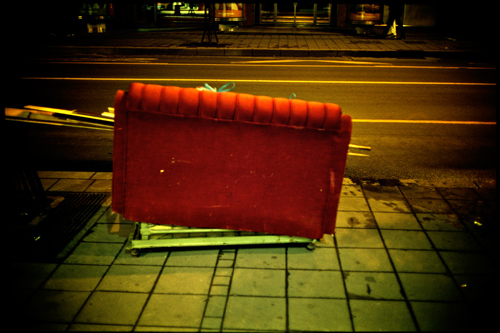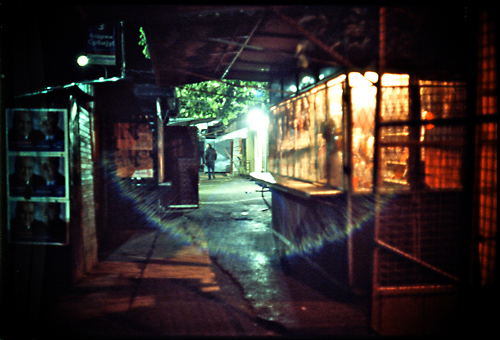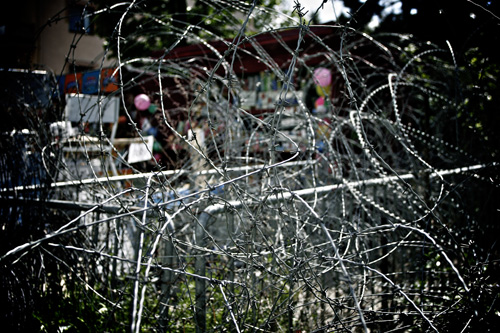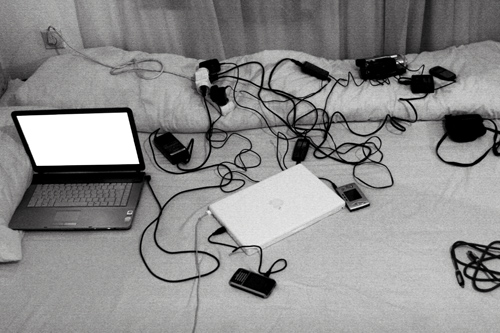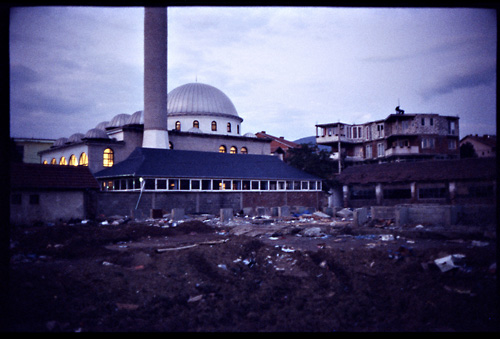
South Mitrovica
Momcilo finds us in front of the Philosophy university, a small building a few streets away from north Mitrovica main street. a slouching man in his thirties, Momcilo wears a black leather jacket, ray ban sunglasses and, above the collar of his dark t-shirt, he lets a fading tatoo appear on his neck. distant, Momcilo looks blas? as a rockstar. « we were told that you know everyone here… », we start, « as you may have noticed, Mitrovica is a small town. », Momcilo states the obvious with a shrug and an ironic smile. we follow him in the small alleys to the guarded entrance of the block with the police station, the courthouse and his NGO. near his building door, a couple of soldiers are sunbathing. in the NGO’s office, Momcilo silently weighs us with penetrating glances and it takes a good fifteen minutes before he starts to lower a bit his defences. he truly animates himself when we start to talk about politics, about the future of the serbs of Kosovo and the mess they’re in, about the UN, the US and the EU and their responsabilities, and of course, about his NGO’s action with serbian youth. « they all say that the next generation is our future, but we really got to do something with them now, in the present » he argues, « so we’re encouraging them to take some responsabilities, to decide things for themselves. » they also work with some albanian NGOs, « before 99, albanians had to learn serb and serbs had to learn albanian », he explains, « but that program has been cancelled, so we’re focusing on that issue, too. people have to be able to do this simple thing : communicate, if not, how can we achieve sustainable peace? »
after more than an hour, we have to end our interview. « by the way, who gave you my contact? », Momcilo asks. as we say the name of the albanian former journalist and Pristina school of journalism co-founder, Momcilo’s face brightens « aah, yes, a very clever and very interesting man! » « he said the same about you », we smile.
****
